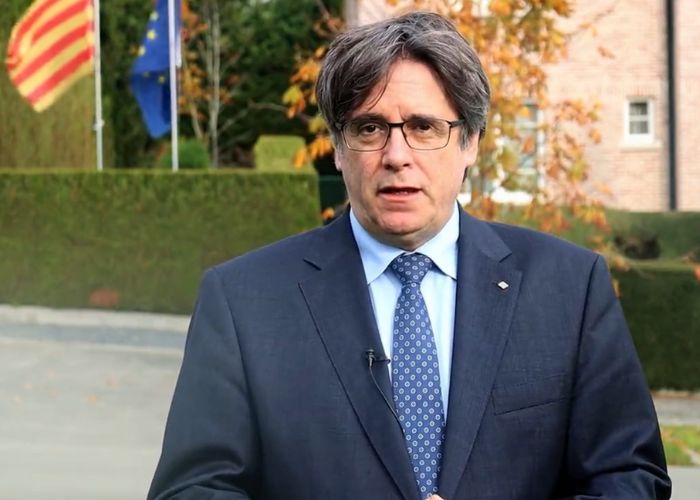MADRID – Catalan ex-president Carles Puigdemont has been fighting for secession from Spain since the referendum five years ago. The EU ignores the conflict. Now the government in exile opens its first foreign office in Germany.
The self-declared Catalan government-in-exile has opened its first foreign delegation in a nondescript office building in Frankfurt. It is not far from the financial district, according to the German Welt. This delegation wants to set up a diplomatic network to represent its interests “where the government of Catalonia, with less and fewer powers, cannot be prosecuted,” former president Carles Puigdemont said at the opening.
Illegal referendum
Five years ago on October 27, then-regional president Puigdemont declared an independent republic in Catalonia after a majority voted in favour in a referendum. However, the referendum was declared illegal by Spain’s highest court.
The government in Madrid under then Prime Minister Mariano Rajoy stepped in and deposed the Catalan government and Puigdemont. Mass protests followed, against which the Spanish police sometimes used violence. Consequently, several members of the government were jailed on charges of rebellion. Some of them were even sentenced to up to 13 years in prison. Carles Puigdemont left the country and has been living in exile in Belgium ever since.
The government does not want to allow Catalans a new referendum
The referendum sparked Spain’s worst political crisis in decades. To date, the problem has not been resolved. Even though Spanish Prime Minister Pedro Sánchez is less intransigent than the previous government, he does not want to allow the Catalans a new referendum. Puigdemont and his supporters hope for a second chance.
Related post: Catalan former president Puigdemont arrested in Sardinia
From his Belgian exile, he wages legal battles at the European and international levels. In 2019, he and two other politicians from his party Junts per Catalunya (Together for Catalonia) were elected to the European Parliament, but Spain has done everything possible to prevent them from exercising this mandate. At the end of November, the European Court of Justice (ECJ) will rule on their immunity, which the European Parliament wanted to waive at Spain’s request.
Spain demands extradition of Puigdemont
If he were denied immunity, the Belgian courts would have to decide on the extradition of Puigdemont to Spain. In 2018, when Puigdemont was arrested in Germany, a court in Schleswig-Holstein decided not to extradite Puigdemont to Spain for treason.
A year ago, Pedro Sánchez pardoned nine imprisoned Catalan politicians. This was following a ruling by the European Court of Human Rights. Spain, on the other hand, is complying with the arrest warrant for Puigdemont.
Spain has violated the rights of some Catalan politicians
The Catalan independence fighters had another success recently: the UN Human Rights Committee ruled in September that Spain had violated the political rights of several Catalan politicians. The decision has no consequences for Spain, but it does for its reputation as a democratic constitutional state.
EU: Catalan conflict is an internal Spanish issue
Criticism of the Spanish rule of law is also central to the strategy of exiled President Puigdemont. However, the pro-independence Catalans cannot count on EU support. As early as 2017, there was no interference in the reference that the Catalonia conflict was an internal Spanish affair. The fear of setting a precedent in the EU with Catalonia was too great.
Click here to read our series on the Catalan history


